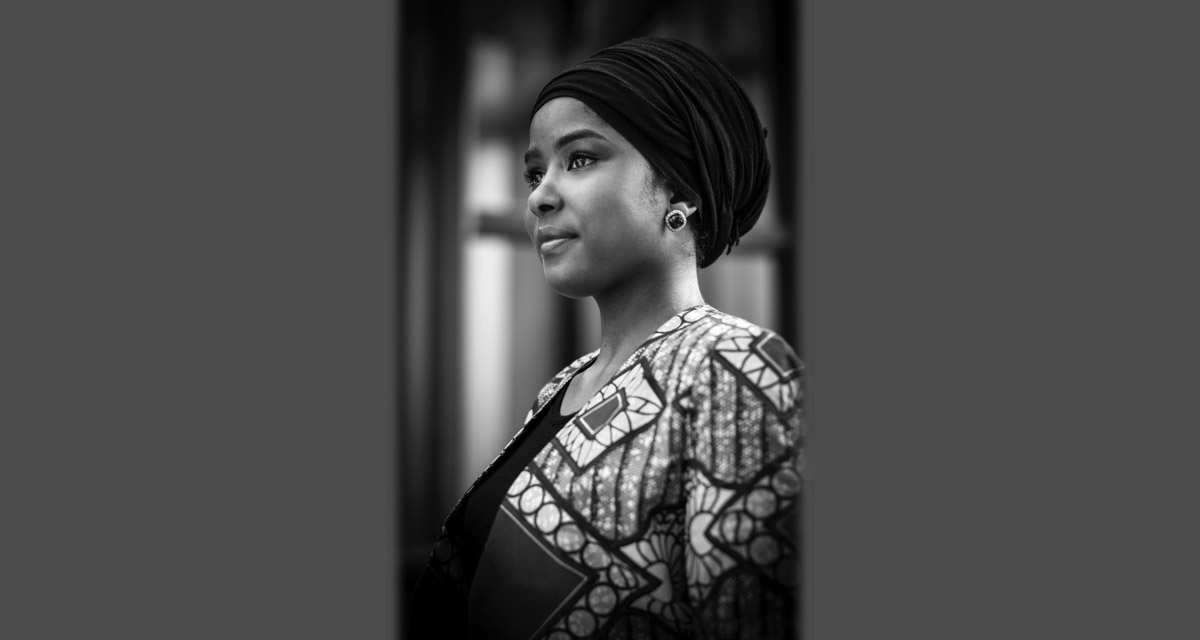Fatumata Bah a Senior Policy Analyst at the Ministry of Health. In addition to her work in government, Fatumata is also a board member for the Young Women’s Christian Association (YWCA), a member on the Donald Beasley Institute Disability Advisory group and a member on the Policy Research and Advocacy Team, Commonwealth Youth Health Network (CYHN).
Fatumata is speaking at our upcoming New Zealand Women’s Leadership Symposium in May. We had the privilege of conducting this pre-event interview, exploring her career journey and how childhood illness spurred her onto becoming a determined leader.
How did your early life experiences shape your career path and advocacy work?
I think it’s safe to say that my early life experiences directly influenced my career path and advocacy. I have often wondered if I was born into different circumstances and if my experiences were different, would I still be doing the work I am today, and the answer would be no.
I have acutely been aware of the many privileges that I have, even during times of adversity and hardship. I know that I’m in a position of great privilege as a former refugee from Sierra Leone, West Africa. From a young age, my parents taught me and my sisters that privilege and rights come with great responsibility and should not be taken for granted, which was usually told through stories of their upbringing. I have had numerous cousins in West Africa who have passed away due to complications of their sickle cell disease, and while I acknowledge the great privilege that I have in accessing the great healthcare system that we have in Aotearoa New Zealand, I am also acutely aware that not all of us experience that great system nor do we all have great health outcomes which can be addressed at a systematic level.
Despite facing health challenges, you’ve remained resilient and dedicated to your work. Can you share how you manage your health while balancing a demanding career and advocacy commitments?
Finding balance or being in a state of equilibrium is definitely something that I am continuing to work towards. It fluctuates all the time. It’s actually quite ironic because to a certain extent, I feel like I’m trying to catch up and make the most of the time that I have lost being unwell and being in hospital.
With my sickle cell disease, particularly when I was younger and when I was hospitalized almost on a monthly basis for a couple of days in and out of hospital, I felt like my life was being wasted and I didn’t get the opportunity to be as active or contribute to society as my school peers did.
I actually vividly remember looking outside the hospital window one day, seeing a parent with a school child in their uniform and school bag making their way into the hospital. In that moment, I wondered if I would ever be well enough to go to school (which I really enjoyed at the time) and to finish my studies.
I think that sense of lost time has fundamentally driven me to my self-prescribed demanding schedule and to make the most of my good health and the time that I have today, because I know it is not guaranteed tomorrow and another sickle cell crisis may as well render me bedridden and unable to do what I want.
For a long time I tried to fight against the sickle cell crises and to push myself as far as I could possible to have a normal life. I was adamant to keep up with my peers and take control of my body and while I know that this determination and dedication is undoubtedly one of my strengths it is also one of my weaknesses.
As I have grown older (and hopefully wiser) I have come to learn to acknowledge the sickle cell crises and the moments of stillness, silence and being in hospital as a necessity for my body to recover and enable me to do the things that I want to do most.
I now view my sickle cell crises in a less adversarial manner and rather as an opportunity to pause, reflect, take a moment to be present and to do a stock take of all of the different aspects of my life including physical, spiritual, family, mental, emotional and work (community + career), to see how I am tracking along and how I potentially need to refocus or fix the balance in those different spheres that holistically give me good well-being. I also recognise that I can’t give when I am running empty and as much as I find it difficult to ask for help when I need to, I see the crisis as my body asking for help and I feel obliged to support my body to continue to support me.
One of the ways that that I manage my health is not only by the medications that I take to help manage my disease because there is no cure (yet), but also by tapping into my village and my support network that have enabled me to not only survive but to thrive. I have friends who know me very well to the extent that some even know and have learned the tell-tale signs of me being on the brink of a sickle cell crisis. Sometimes I do need the little nudge and reminder to take things slow and my family and friends keep me honest in my quest for equilibrium.
What advice would you give to young leaders who aspire to make a difference in their communities?
You are not the leaders of tomorrow. You are the leaders of today. You have the agency to make a difference in your community and the world. It is your actions today that will make the difference and determine tomorrow.
Don’t miss the opportunity to hear first-hand as Fatumata Bah shares more of her insights at the upcoming New Zealand Women’s Leadership Symposium. Book your tickets now to be inspired by her incredible story!

